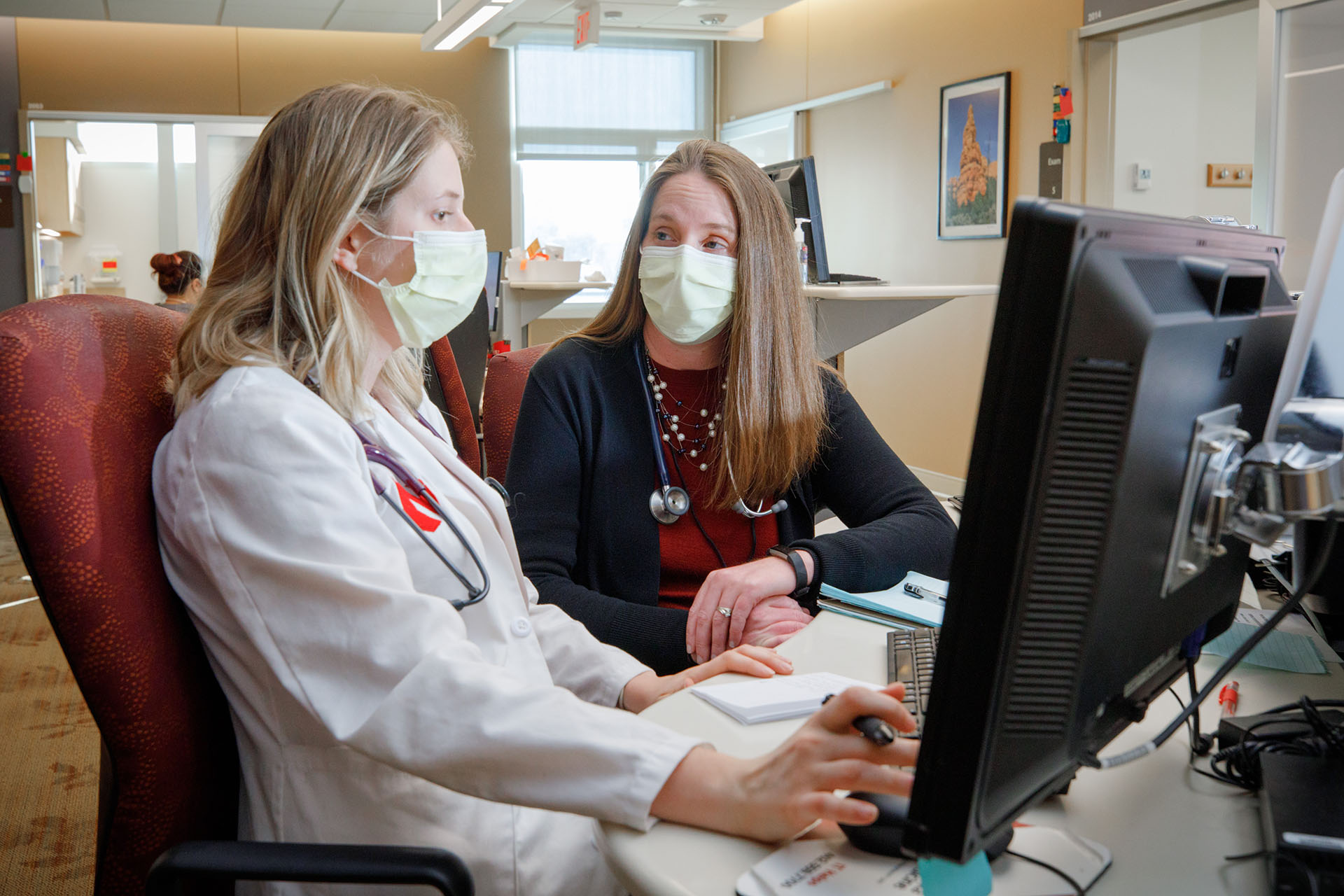This story appeared in the Internal Medicine Department’s 2022 Biennial Report, which was published earlier this year.
It’s not uncommon, during residency interviews, for UNMC’s fourth-year medical students to be asked: “What’s this EMET?”
Students go on to explain how UNMC’s Enhanced Medical Education Track (EMET) enables them to study a field of medicine in-depth while also completing their required medical school curriculum.
“Each track brings something unique,” said faculty member Geoff Thiele, PhD, professor of rheumatology, who leads the auto-immune disease track, one of the first five tracks UNMC offered.
Today, students select from more than a dozen tracks, often tying it to an area of interest or passion. The tracks challenge students and address specific topics in greater depth than is available through the required curriculum. Upcoming additions: cardiology, oncology and wilderness medicine/prehospital medicine.
UNMC launched the course in 2009 after then senior associate dean for academic affairs Gerald Moore, MD, returned from a national conference where Stanford introduced the idea. “He came back and said, ‘We need to try this,’” Dr. Thiele said.
Since then, nearly 500 students have graduated from the program and, from day one, faculty within the UNMC Department of Internal Medicine have led or co-led tracks.
“Joining an EMET program is a tremendously valuable experience,” said then fourth-year medical student Rohan Khazanchi, who participated in the HIV medicine track and graduated with his medical degree earlier this year. “EMETs are unparalleled opportunities for structured and longitudinal engagement with some of the best faculty mentors at UNMC. My experience in the HIV EMET truly shaped my professional opportunities and career interests.”
Khazanchi, who has a master’s in public health and plans a career as a clinician-investigator who cares for marginalized patient populations, has collaborated with clinic faculty and staff on several research projects and said the UNMC Specialty Care Clinic became “a home base,” where he returned “to build upon my growing skillset.”
It is the mentors and friends at the clinic, however, that are his “most treasured takeaway.”
“As I developed a niche in researching health inequities and structural determinants of HIV outcomes, it was wonderful to become part of the clinic ‘family’ in a longitudinal way. I developed close relationships with our clinic’s physicians, fellows, nurses, pharmacists, social workers and case managers alike — not just through learning from the care they provided, but also because they were genuinely invested in my personal and professional growth as an individual.”
Faculty member Elizabeth Harlow, MD, associate professor of gerontology, shares her passion for geriatric medicine with EMET students through the aging and integrative medicine track. “The joy of this track, and what I’m really proud of, is how it combines both clinical and scholarly activities,” she said. “The students actively engage in clinical care activities allowing for a better understanding of the older adult population regardless of the field they go into.”
Students may or may not pursue the focus of their track, but all are stronger clinicians because of their EMET experience, said Sara Bares, MD, assistant professor, who leads the HIV track. The skills the students learn in the EMETs are broadly applicable, she said. “It does help them prepare for the next step, whatever they specialize in.”
Faculty also agree that while each track is unique in its scope of clinical and/or scholarly work, they all provide invaluable mentoring and networking opportunities for the students who are selected to participate.
“That’s a huge benefit for them,” Dr. Bares said.
And, she said, it creates a unique discussion point, and likely advantage, during residency interviews.
EMETs: The nuts and bolts
Interested students apply to a track during the second semester of their M1 year. Accepted participants then complete the designated track activities, such as seminars, preceptorships or research, throughout their M1, M2 and M3 years. During the M4 year, students, with guidance from their mentors, produce a capstone project, such as a poster or conference presentation. Recognition for students who complete EMET includes documentation of performance in their medical student performance evaluation, acknowledgment of completion on their transcript and recognition at the UNMC College of Medicine’s hooding ceremony.
